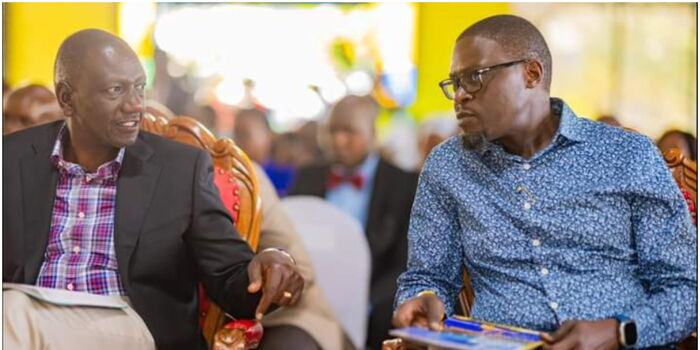Nairobi Governor Johnson Sakaja has moved to clarify President William Ruto’s recent remarks about major clean-up and development plans for the city, following concerns that the national government was taking over county functions.
Sakaja explained that the initiatives announced by the President were not about political interference but were joint efforts meant to improve service delivery through partnerships, especially with the private sector.
He pointed out that involving private companies in development projects is not only acceptable but encouraged.
“For example, after collecting garbage in the city and taking it to Dandora, we are partnering with a Chinese company to generate 45 megawatts of power,” Sakaja said.
He added that Nairobi County already has a power sale agreement with the national government through the Ministry of Energy.
On Sunday, President Ruto revealed that the national government and the Nairobi County administration had agreed on four development areas that would receive state funding.
The arrangement reminded many of the Nairobi Metropolitan Services (NMS) era in 2020, which stirred controversy at the time.
The President said the joint plan includes a large-scale cleaning exercise across the city, backed by private sector investment and government support.
Following this announcement, Sakaja clarified that the collaboration would not stop at garbage collection. He said it would extend to infrastructure, housing, and other city services.
He stressed that Nairobi cannot progress without cooperation between the county and the national government.
“Nairobi hosts the Executive, Judiciary, Legislature, and many key offices. We must work together,” Sakaja said.
“Some roads belong to the county, others to the national government—but ordinary citizens don’t care about that. They just want services delivered.”
Improving Street Lighting
Responding to concerns about poorly lit streets—an issue President Ruto also highlighted—Sakaja said his administration is already in talks with the Ministry of Energy, Kenya Power, and EPRA.
To address the problem, he proposed redirecting part of the rural electrification levy to improve lighting in Nairobi.
He noted that Nairobi residents pay about Ksh8 billion in electricity bills every month, which includes a 3.4 percent rural electrification levy.
“If we redirect just that portion into lighting up Nairobi, we can make the city brighter, safer, and support longer business hours,” Sakaja said.
Nairobi’s Transformation Vision
According to President Ruto, transforming Nairobi is part of a bigger dream to move Kenya from a developing nation to a first-world country within the next 30 years.
One of the most visible projects under this agenda is the cleanup of the Nairobi River. The exercise is scheduled to be completed by January 2027.
A large portion of the Ksh40 billion set aside for the project will go toward building a sewerage system from households, with the goal of modernizing the capital.
Join Government Official WhatsApp Channel To Stay Updated On time
https://whatsapp.com/channel/0029VaWT5gSGufImU8R0DO30


